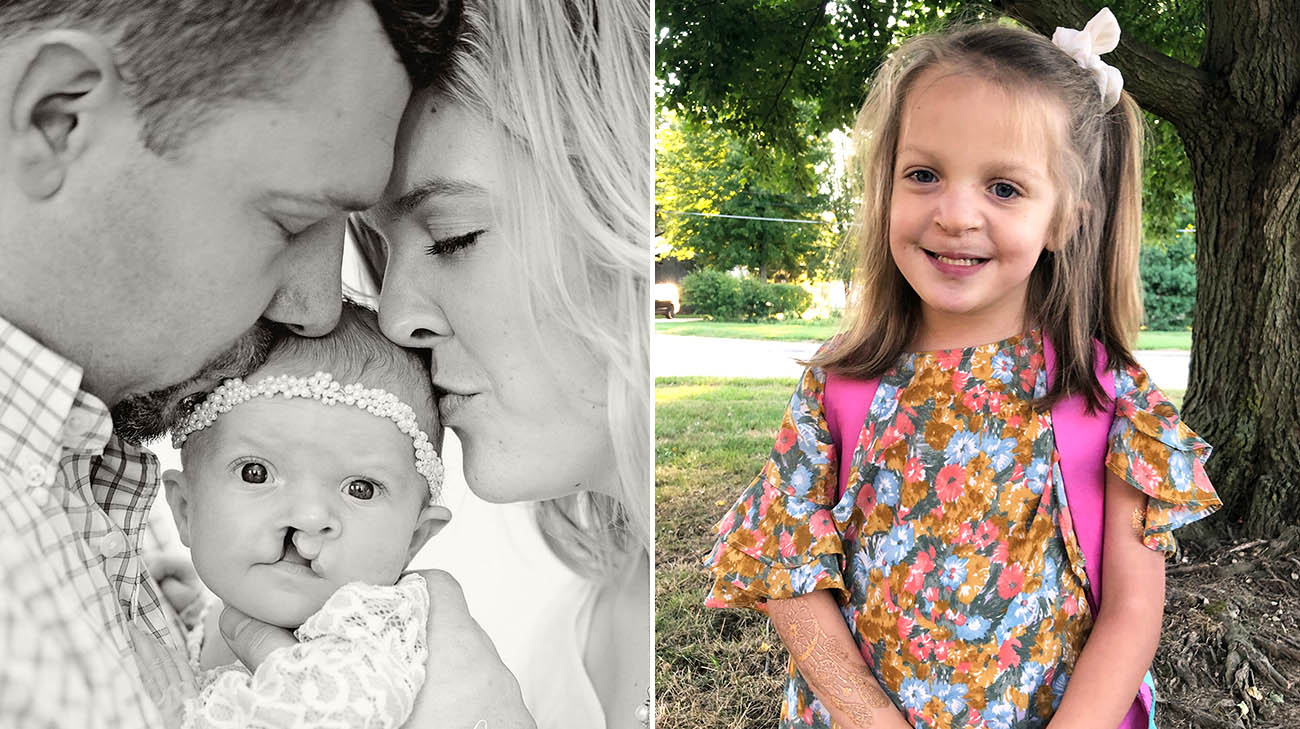
The list of medical conditions 6-year-old Charlotte Whiting endures every day is lengthy. “Head-to-toe anomalies” is the phrase mom, Emily K. Whiting, uses to describe her daughter’s multifaceted malformations and abnormalities. Emily and her husband, Dan, have become experts in managing the complex symptoms that drive their daughter’s daily care while navigating the disparate disciplines required to treat her.
“One of the challenges in having a child with so many rare conditions is Charlotte doesn’t fit into one category,” says Emily, whose full-time job is caring for her daughter, as well as home schooling the first grader before she enrolls in her local school in the fall of 2024. “I used to say we float in this abyss I called ‘the rare, undiagnosed disease no man’s land.’”
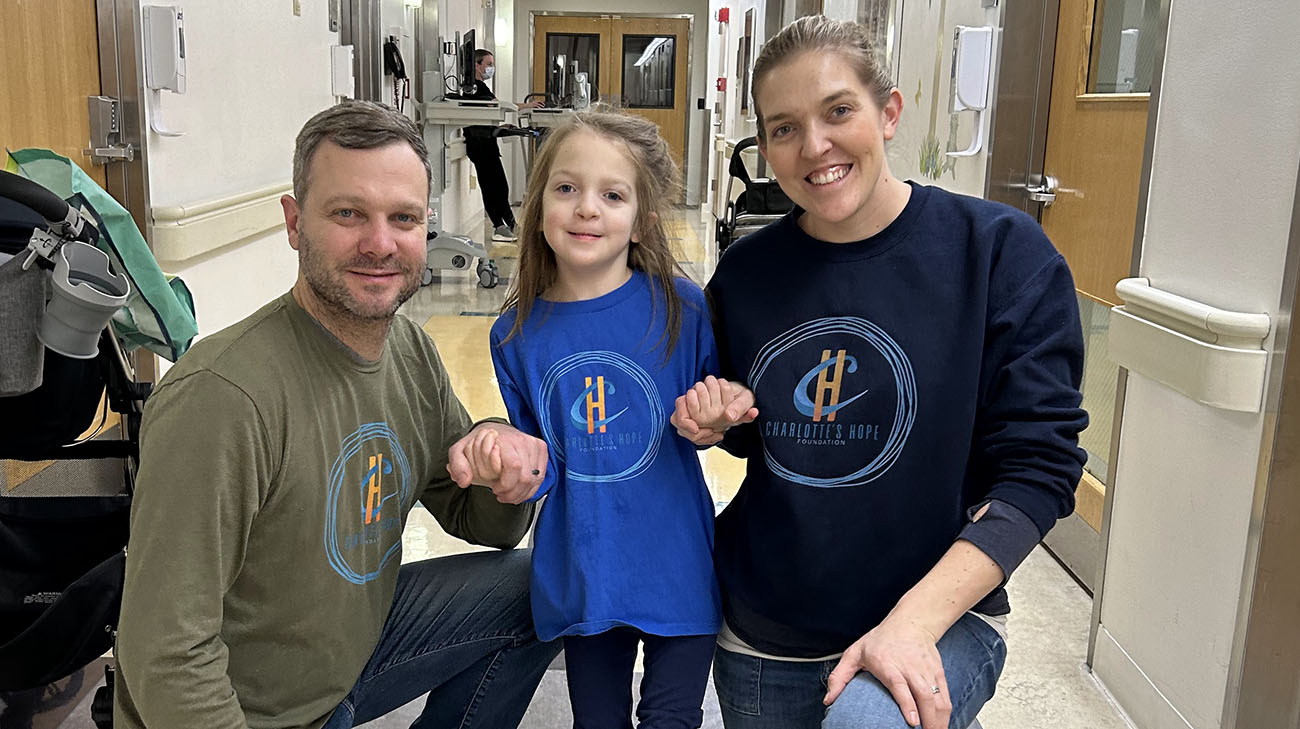
Charlotte with her mother, Emily, and father, Dan. (Courtesy: Emily Whiting)
But not anymore. Cleveland Clinic clinical geneticist Adnan Alsadah, MD, conducted whole genome sequencing testing on Charlotte and discovered the overarching cause of her medical situation. DNA analysis requires a blood test or a cheek swab from the patient and their parents. Dr. Alsadah diagnosed Charlotte with MED12-related disorder, also known as Hardikar Syndrome, a genetic mutation in her MED12 gene that has created her vast phalanx of conditions. The mutation is linked to abnormalities with her kidneys, liver, heart and gallbladder, gastrointestinal issues and a cleft lip and palate.
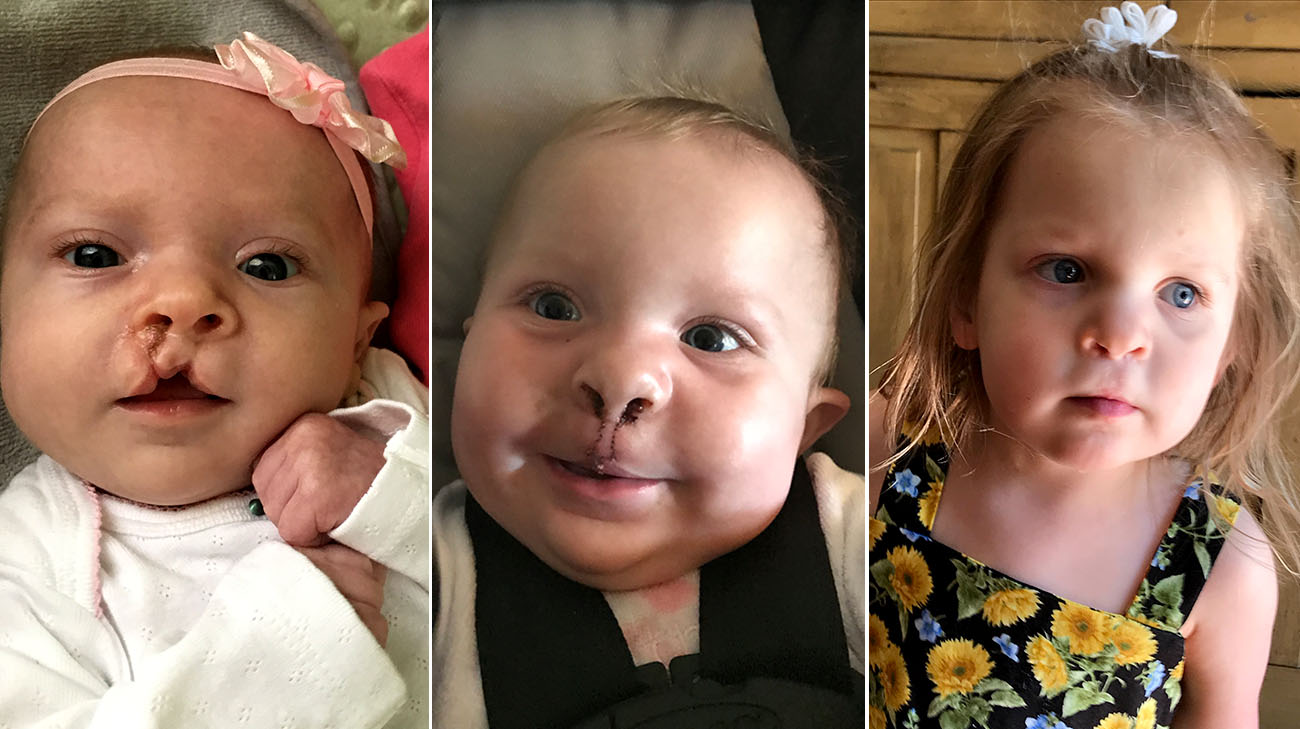
Charlotte had several surgeries to repair her cleft lip and palate. (Courtesy: Emily Whiting)
MED12-related disorder is classified as “ultra rare.” At her official diagnosis in 2023, Charlotte was one of nine documented individuals globally with the condition. While there is no specific cure for MED12-related disorder, its existence has shed more light on Charlotte’s current and possible future medical issues, thus helping guide the army of Cleveland Clinic specialists, nurses and support staff who have cared for and continue to treat her.
“Whole genome sequencing is the most comprehensive genetic testing available today,” says Dr. Alsadah, who founded the Undiagnosed Disease Clinic within Cleveland Clinic’s Center for Personalized Genetic Healthcare.
Dr. Alsadah says he established the clinic to help families like the Whitings who are seeking answers to a multitude of interrelated medical problems.
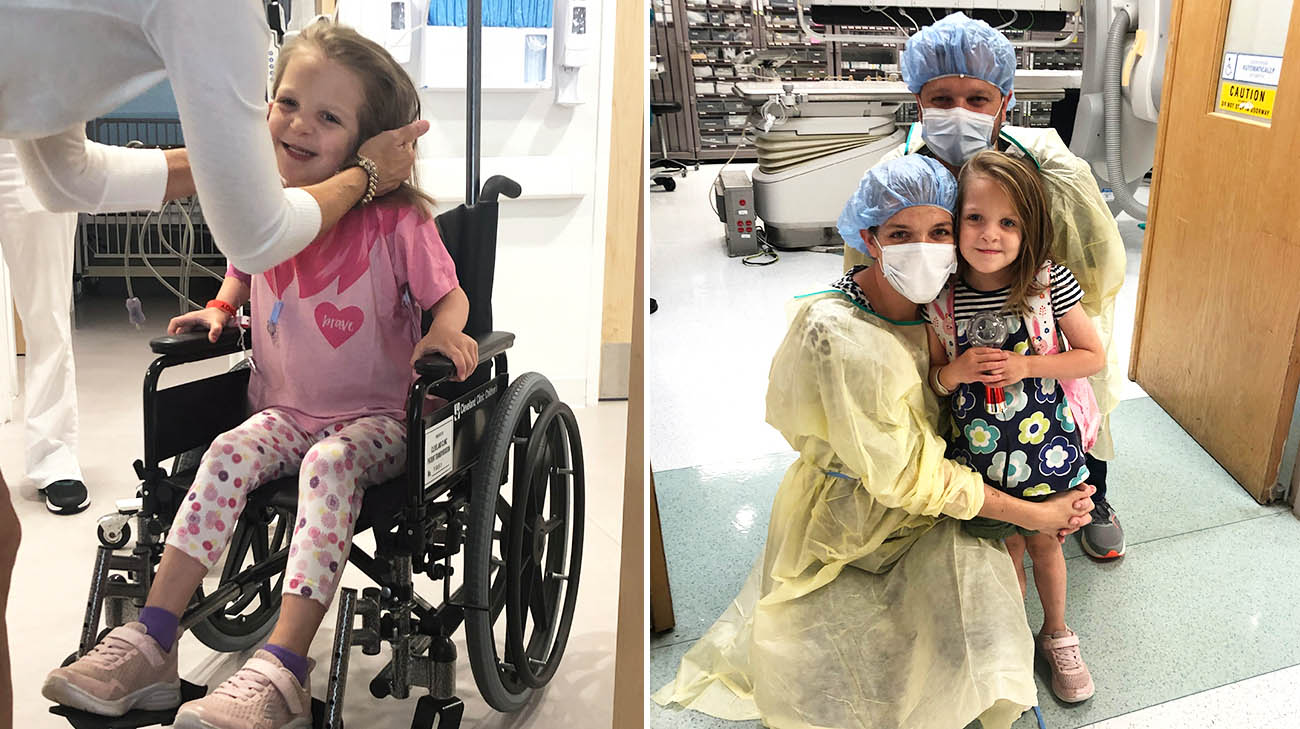
Charlotte has undergone 18 operations and procedures to treat her various conditions. (Courtesy: Emily Whiting)
“Now that we have a diagnosis,” he adds, “it will serve as a model of care for all Charlotte’s providers and specialists who can better tailor their monitoring and management of her.”
The diagnosis also offered a beacon of hope for Emily and Dan, as previous genetic testing had not revealed the primary cause of her medical problems. As Emily describes it, “The diagnosis has unearthed some other conditions we had suspected we can now address. But on a personal level, it has become life changing. I had never met any other parents who are going through what we’re facing, and knowing others who can relate is a huge part of the journey with rare disease.”
A Glimmer of Hope
Emily and Dan initially learned of Charlotte’s medical issues, from their first ultrasound, at a doctor’s office close to home, when Emily was 20 weeks pregnant. Emily remembers getting a first glimmer of hope shortly after that first test when they met with Cleveland Clinic maternal-fetal medicine specialist Jeff Chapa, MD.
“Dr. Chapa said to us, ‘I don't know what tomorrow brings or what her future life looks like, but I do know she's alive today. So, let's focus on her life,'” Emily recalls. “That gave us a little sigh of relief, enough to take a deep breath and start taking it one day at a time.”
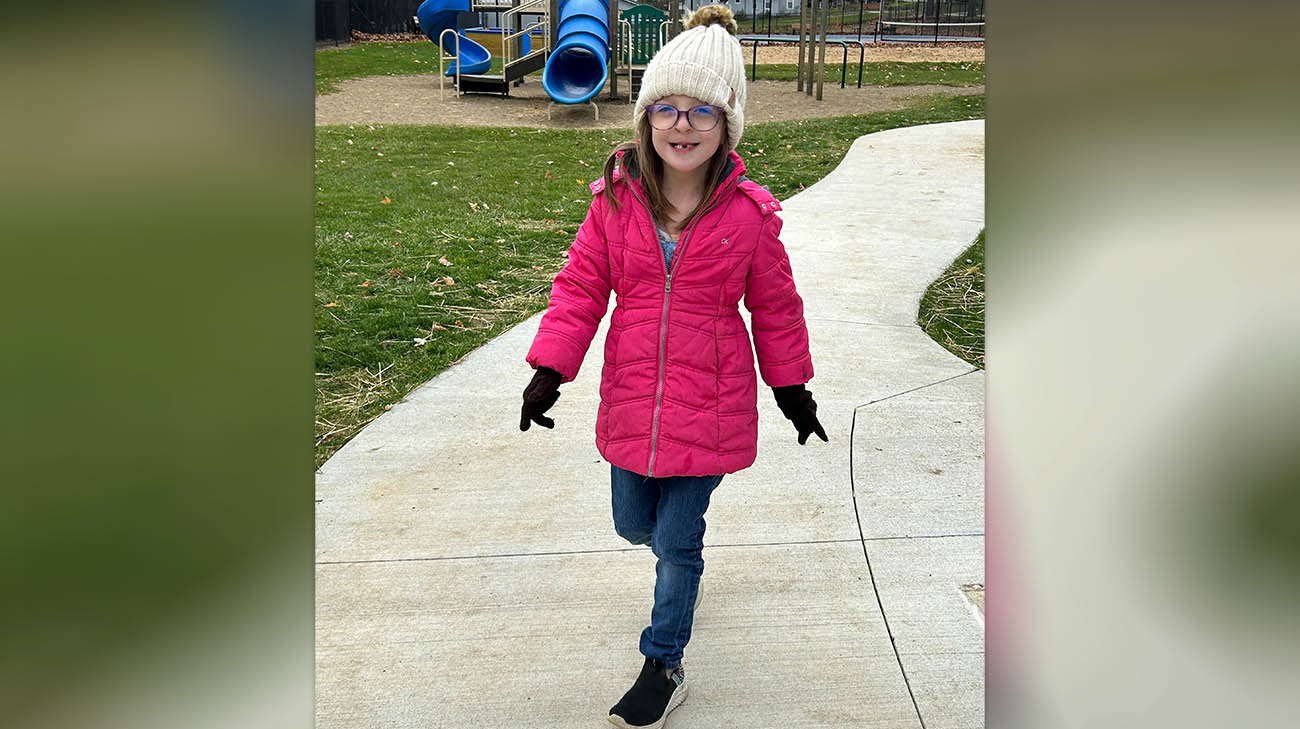
Emily says Charlotte has gone through so much in such a short period of time, but she continues being amazed at her resilience and strength. (Courtesy: Emily Whiting)
From that point forward, Emily and Dan made weekly treks to Cleveland Clinic Children’s, about an hour north of their Doylestown home. Pre-birth consultations with neonatologists, pediatric cardiologists and a long list of other specialists prepared Emily and Dan for what to expect when Charlotte arrived.
Pediatric gastroenterologist and hepatologist Kadakkal Radhakrishnan, MD, was concerned by the number and severity of Charlotte’s conditions, especially a choledochal cyst (which impacts the ability to drain bile from the liver to the intestines) and several kidney problems.
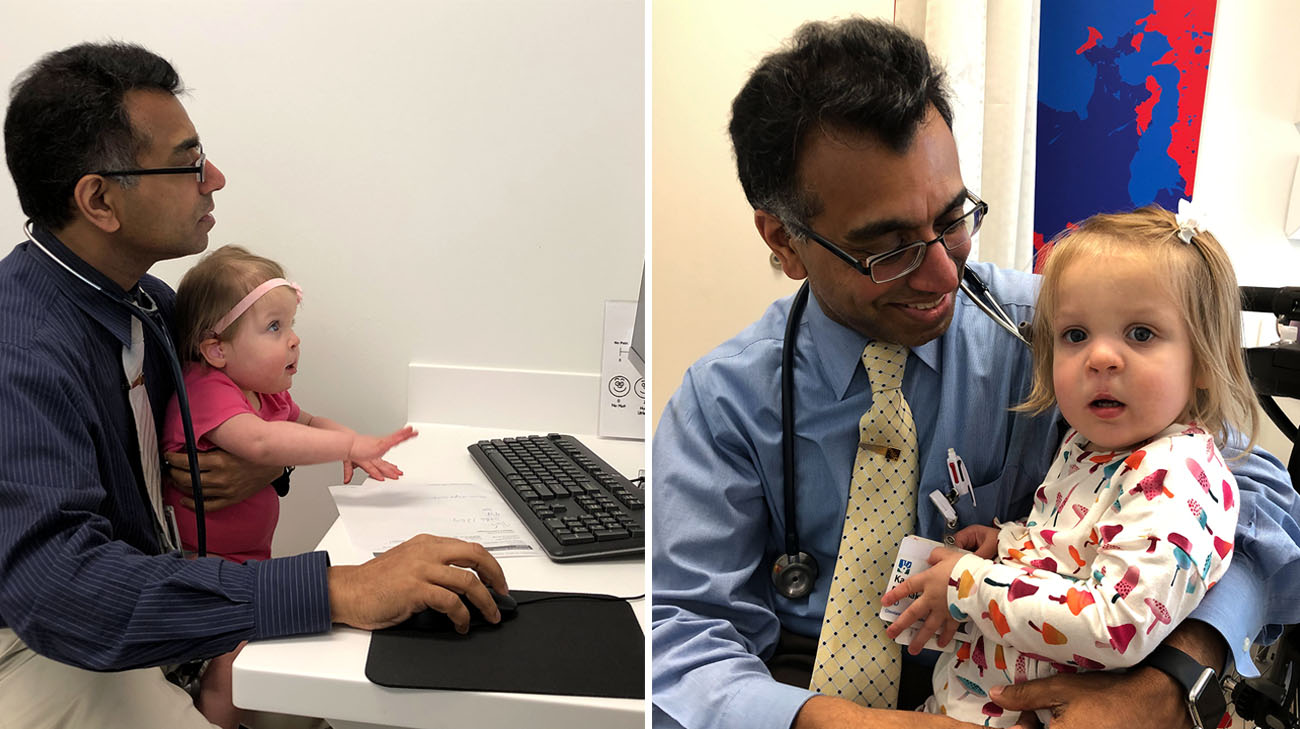
The Whitings are grateful for their 'army' of caregivers, including Dr. Radhakrishnan, who treat Charlotte like their own child. (Courtesy: Emily Whiting)
“Charlotte has so many health issues. They can only be served well by caregivers who communicate properly at all times,” explains Dr. Radhakrishnan, who oversaw Charlotte’s growth and kept a close eye on her liver function.
When Emily was induced and Charlotte was born, at about 37 weeks gestation, she and Dan only had a moment to hold her. Then, she was whisked off to the neonatal intensive care unit (NICU) – where Charlotte stayed for 72 days. Less than a week old, she underwent her first operation, a corrective procedure to improve kidney function.
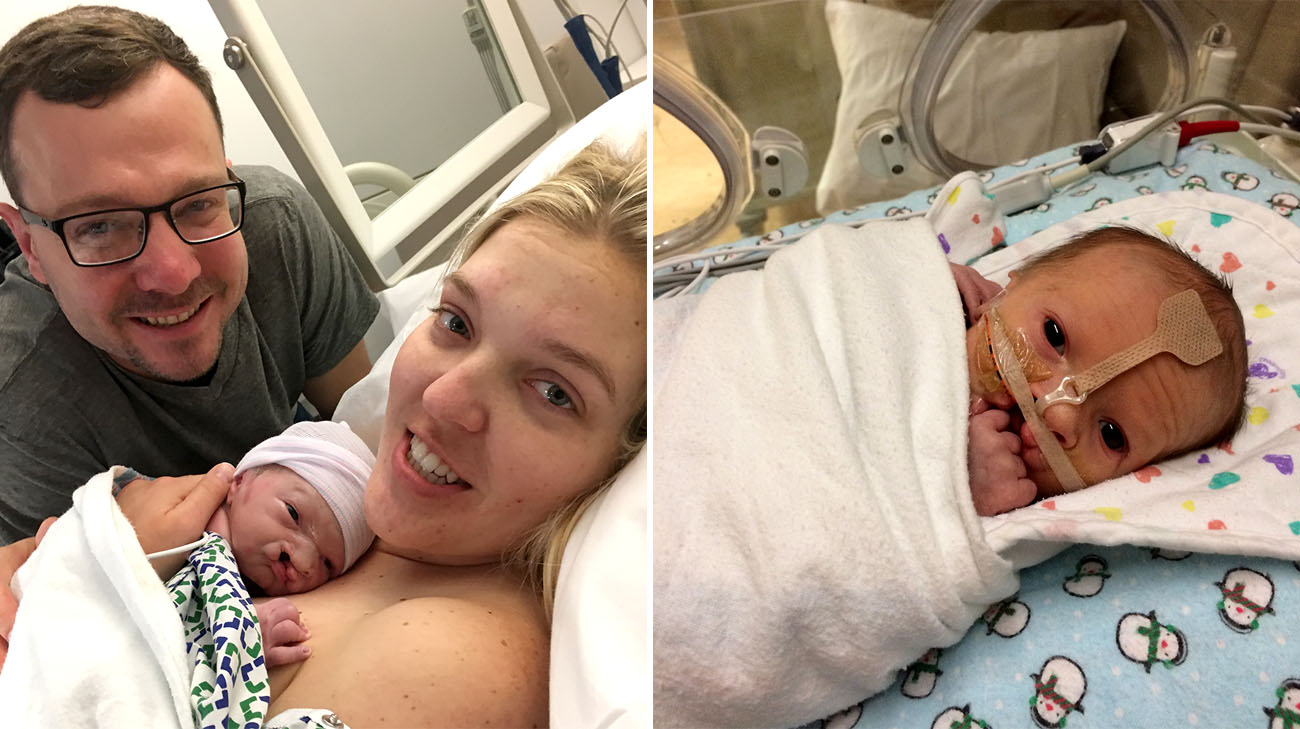
Emily and Daniel were able to hold Charlotte for just a moment, before her care team took her to the NICU. (Courtesy: Emily Whiting)
One month later, Charlotte faced what Emily calls “the pivotal moment” – a highly-complex operation that removed the cyst threatening her liver and reconstructed/repositioned most of her gastrointestinal tract. In the ensuing years, Charlotte has undergone 18 operations and procedures to treat her various conditions.
The Path Forward
Long before Charlotte's diagnosis Emily and another parent co-hosted a weekly podcast that offers support, encouragement, education and resources to help parents navigate their child’s medical complexities regardless of diagnosis or prognosis. Once aware of the MED12-related disorder, Emily established a community page on social media that attracted parents and caregivers from around the world.
A lively and thriving child, Charlotte is the doting older sister to brother Liam, 4, and sister Eden, 2, who are not afflicted with Charlotte’s conditions as the MED12 variant is not hereditary in their family. As Emily says, “Charlotte is an amazing gift to our family. Through all her challenges, she is an incredible blessing.”
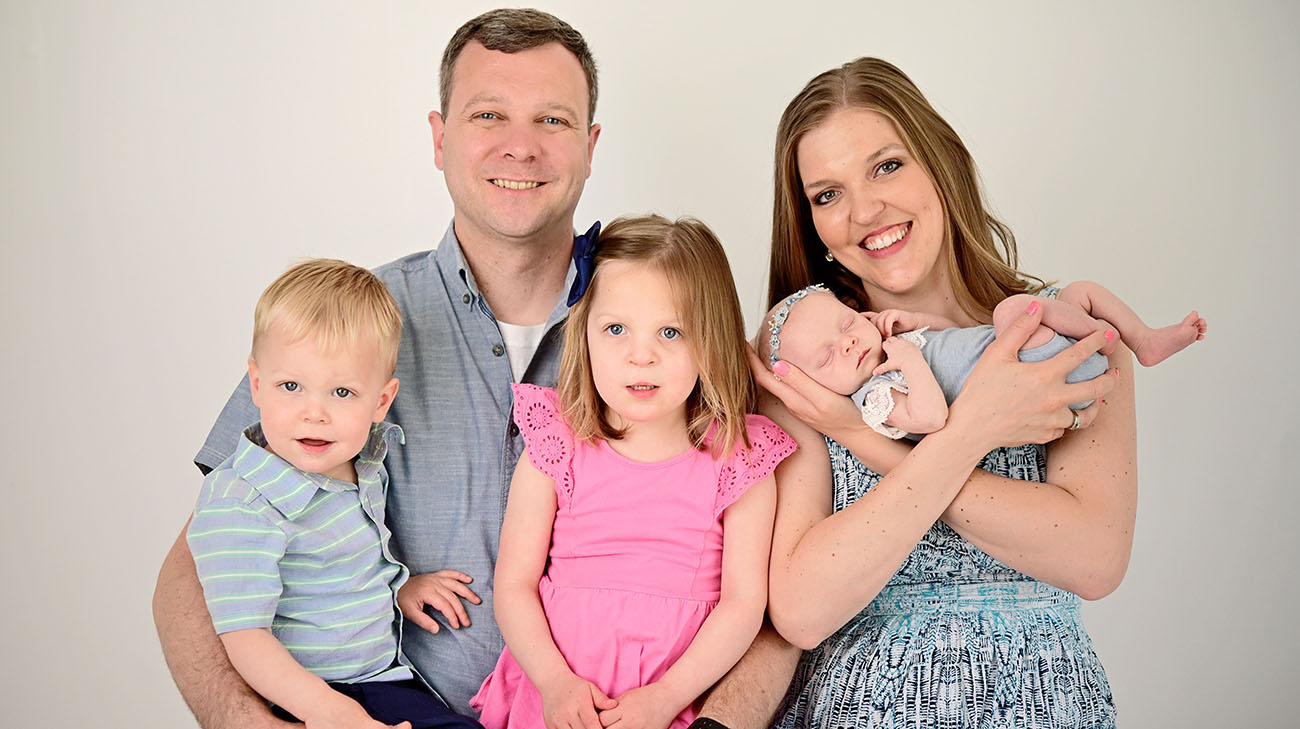
Charlotte is the older sister to brother, Liam, now 4, and sister, Eden, now 2. (Courtesy: Emily Whiting)
“It’s one thing to have people feel for you, and their love and support means so much, but it’s another to have people feel with you because they’ve been there, too. We can provide each other comfort and practical support, because we’re not the ones figuring things out from ground zero anymore,” emphasizes Emily. “We're incredibly grateful for our entire Cleveland Clinic team. Their continued support has been a beacon of hope for our family throughout Charlotte's journey.”
Related Institutes: Cleveland Clinic Children's , Ob/Gyn & Women's Health Institute, Community Care

